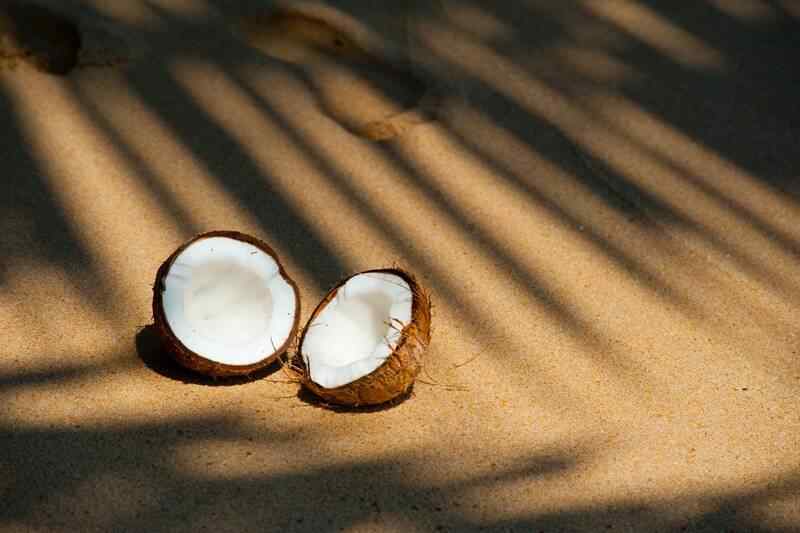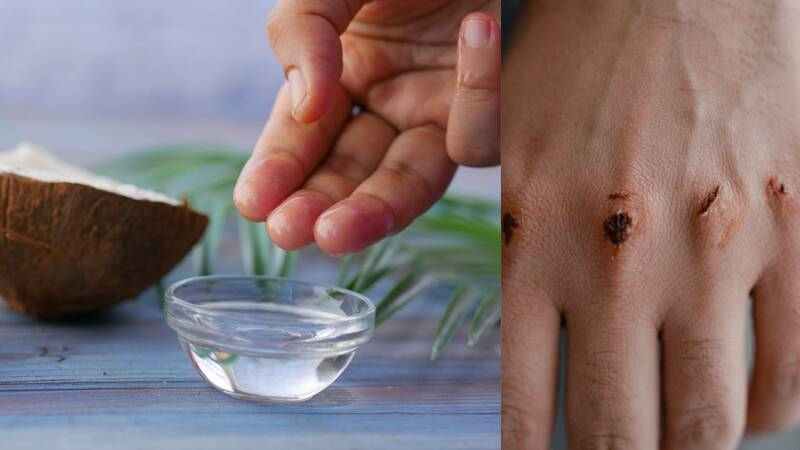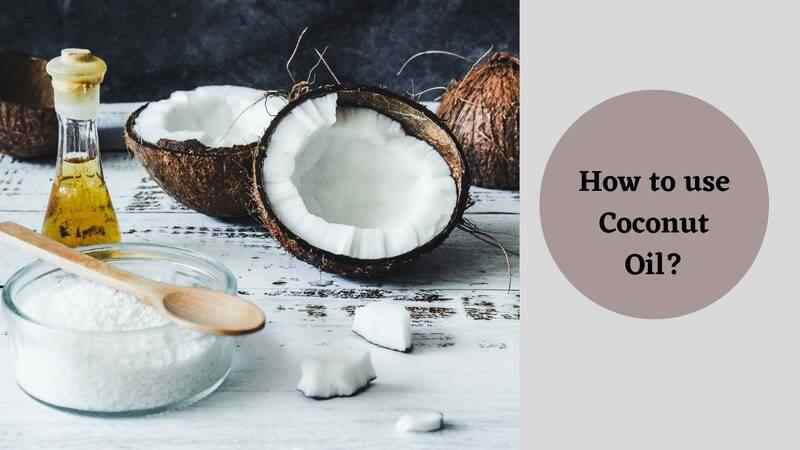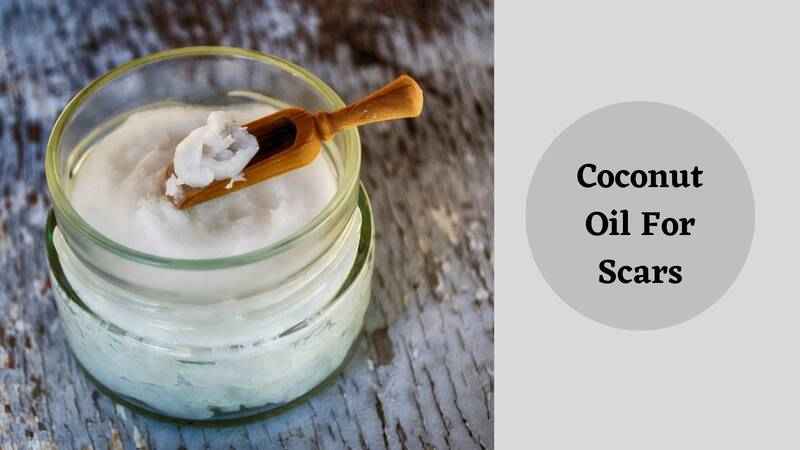Scars are inevitable. They are an effective part of the natural healing process of the body.
It is generally caused due to injuries, burns, medical treatments, skin conditions such as acne, and various other forms of physical traumas.
Therefore, there is always a greater demand for treatment options along with coconut oil for scars treatment.
Coconut oil is effective enough to reduce the visibility of the scars and improve the entire appearance of your skin.
Contents
How to use coconut oil for scars?
It is quite hard to continue living with scars, mainly when they are in a visible location or when it brings up any hurting memories.
Luckily, there are several possible treatment options, including naturally getting rid of scars using the remedies such as coconut oil.
It is a well-known method in trying to get rid of the scars. Several dermatologists and beauty experts also suggest it.
Understanding coconut oil
Coconut oil is considered more than just a healthy alternative to cooking due to its amazing moisturizing properties for your skin and hair.
A few of their active ingredients are effective enough to minimize the scars.
The evidence is quite promising, although several other types of research are required in this domain.
Continue to read on to learn about the effects of coconut oil in treating different kinds of scars, the way it can be used in homes, the possible adverse effects, and a lot more!
How does Coconut Oil work?

There are several uses for coconut oil. It is used as a makeup remover to being used as a hair condition along with the effective management of the scars.
The benefit it has on the skin is quite well-known. It helps reduce the appearance of the scars, especially due to its richness of vitamin E and bearing medium-chain fatty acids that stimulate the production of collagen, improving the healing rates.
Coconut oil can help to fade existing scars and lessen the severity of more recent problems.
The medium-chain unsaturated fats can help to reduce the appearance of old scars.
Because of the increased moisture it offers, the oil can help prevent new scars from developing.
It helps to prevent scarring by removing cracking and scorching
. Experts recommend applying cooler virgin coconut oil on your skin (or VCO).
Read– Sesame Oil Benefits
Benefits of coconut oil on reducing scars

The majority of coconut oil research is focused on wounds, including dermatitis (eczema).
Coconut oil can aid in both circumstances by behaving as a thick, hydrating barrier while the skin recovers. In principle, such effects might aid in the treatment of early scars.
Coconut oil also was claimed to aid in the formation of collagen.
Increased protein in the skin may aid with fine wrinkles, but it may also help reduce scarring by holding new skin tissue properly.
Other claimed advantages include an equal skin tone, which may aid scar-related inflammation and other abnormalities.
There are several other types of research required to back up the claims, although there are marketers who recommend using coconut oil.
Several known benefits back its naturally rich content of vitamin E.
However, it is unclear whether the coconut oil in itself and not being individual components that can help in scarring.
Acne scars
It is after a breakout that the acne scars develop. It all happens due to the breakdown of the collagen fibers that surround the pores.
Boxcar, ice picks, and the rolling scars are the common kinds involved here.
You may consider the use of coconut oil to improve collagen and repair the skin. A few people are trying the oil to remove the dark spots as a residue of acne.
There is a single kind of ingredient in coconut oil that is rich in antioxidant vitamin E.
But, there is research behind its use for treating the scars and several other skin conditions considered inconclusive.
These are based on reviews behind the 65 years of valuable research that has been done with vitamin E along with coconut oil.
The application of vitamin E is a well-known practice as there still requires more extensive research proving to make an effective difference.
Yet another ingredient present in coconut oil is Lauric acid, as there are several other potential capabilities in reducing the acne forming due to the Propionibacterium in a few specific kinds of inflammatory acne. These help prevent future acne lesions along with the scars that come tagged with them.
Stretch marks
Stretch marks appear when the skin’s main layer (dermis) stretches rapidly.
This might be due to pregnancy or another form of weight gain.
Stretch marks are tough to get rid of once they appear.
Stretch marks fade in color naturally over time, making them less apparent.
You might be questioning if coconut oil might assist speed up these processes.
A review of trials on using different oils to treat stretch marks concluded that they had no effect on these scars.
More study is needed to establish if coconut oil has many benefits for stretch marks in particular.
Atrophic scars
The depressed marks present on the skin are known as atrophic scars.
A few of them occur out of the acnes in the form of boxcar scars or icepicks.
Others may form out of previous injuries or chickenpox.
The scars are round and oval in shape due to hyperpigmentation.
There is a common theory that coconut oil produces a greater amount of collagen that is present in the skin.
If you deal with the atrophic scars, then they may appear due to the enhanced collagen and can even arise out of the marks of depression on your skin.
Surgical scars
Scar tissue grows whenever your skin is injured, while new tissues are formed.
A more obvious scenario is surgery. To assist in avoiding scarring after surgery, some patients use vitamin E preparations right after the incision has healed.
Coconut oil treating surgical scars has received mixed reviews.
The look of surgical scars on human volunteers was shown to be exacerbated by vitamin E in 1999 research.
These findings contrasted with those of a 2010 rat research, which found that wounds treated with coconut oil improved.
According to the researchers, the oil caused an increase in collagen formation, which allowed the skin tissues to repair faster.
Hypertrophic scars
These scars are the ones having a significant loss of collagen.
The healing wound has more scar tissues formed over thickened areas.
The research on the vitamin E content of hypertrophic scars is generally mixed, although coconut oil is noted to aid in the loss of collagen.
Keloid scars
On the other hand, Vitamin E was proven to help prevent keloids from forming after surgery in another study on post-surgical scarring.
Keloids are hypertrophic scars that appear as elevated tissue masses in a specific region.
More study on coconut oil is needed, given the conflicting findings of hypertrophic fibrosis and keloid scar from vitamin E.
Contracture scars
Scars being left behind after severe traumas are known as contracture scars.
Not only are you dealing with the scar, but the surrounding region might also be unpleasant.
Scar contractures are normally treated with skin transplanting and other surgical techniques due to their severity.
Coconut oil may be useful in preventing scarring after a severe injury.
ACCORDING TO A PRIOR STUDY, Vitamin E had no discernible effect on contracture scars.
To update this conclusion, more study is required.
Read– Maracuja Oil Benefits
How to use coconut oil?

You can get coconut oil over the counter.
You can even purchase them in their pure form, being an ingredient present in the product.
For optimum results, use the product a couple of times in a day, such as in the morning and night. Follow the instructions present in the right amount of dosage.
Initially, you will have to perform a patch test before getting started with it.
It aids in determining whether you are sensitive to the oil or not.
To get this done:
- Apply a smaller amount to your forearms
- Get the entire area covered with the help of a bandage.
- However, the product is likely to be safe from being used elsewhere if you are not experiencing any kind of inflammation or irritation in just 24 hours.
- Irrespective of the type of coconut oil you are selecting, make sure you wear sunscreen daily. Along with safeguarding you from damage from the sun, prevent your scars from darkening up and becoming visible.
Possible Risks and Side-Effects of Coconut Oil for Scars
Coconut oil, like any other skincare component, can trigger allergic reactions in certain people.
Unfortunately, the only way to know how your skin will respond to the oil is to do a skin patch test.
If you put the oil on surgical scars, you will be more likely to develop contact dermatitis.
If you have a coconut allergy, you should avoid using coconut oil.
Read– Eucalptus Oil For Hair
When to visit your doctor?
The effects of coconut oil have the potential such as normal cosmetics, although it is considered a natural product.
It is recommended to check with your doctor before using the product to treat your scars at your residence.
They can suggest some more effective alternatives.
If you are selecting coconut oil, then always keep a watch for any abnormal symptoms.
Discontinue its use if you are experiencing any kind of irritation and visit your doctor with persistent symptoms.
Read– Oregano Oil For Cold Sores
FAQs
Below we share some FAQs related to the query “Coconut Oil For Scars”
1. Can you use coconut oil to treat a scar?
Coconut oil also was claimed to aid in the formation of collagen. Collagen may aid with fine wrinkles, but it may also improve scarring by connecting new skin tissue.
2. Is it true that coconut oil speeds up the healing of wounds?
It was shown that using virgin coconut oil to treat wounds accelerated healing, enhanced antioxidant status, and boosted collagen levels, an essential protein that assists wound healing.
3. How can you get scars to vanish quickly?
While present scars cannot be wished away with a magic spell, you can hasten their fading by using topical ointments, lotions, and gels daily.
Aloe vera, cocoa solids, Vitamin E, propolis, and other moisturizing elements are typical constituents in scar treatments.
4. By how long do scars take to fade?
Over time, part of collagen decomposes at the incision site, helping to reduce blood circulation.
As a result, the scar develops smoothly and becomes soft over time. Scars are permanent; however, they can diminish up to two years with time. They’re unlikely to fade much farther after this.
5. Which is the ideal way to make a scar appear worse?
Being exposed to sunlight is an environmental element that has a great impact on the scars on the skin.
For more than a year, the scars are more prone to radiation from UV rays.
Not being able to depend on the photodamage causes the skin to become inflamed or worsen due to the changes in the pigmentation.
6. Is coconut oil capable of removing black spots?
Coconut oil can brighten skin and may aid in the reduction of dark spots and uneven skin tone.
This impact may be enhanced by adding lemon juice.
7. Is it possible to use raw coconut oil on the skin?
Coconut oil may provide a variety of skin-beneficial properties.
According to research, it may have anti-inflammatory, bactericidal, and antiviral activities.
Coconut oil may also be used to moisturize dry skin. Coconut oil may be applied straight to the skin.
8. What occurs if coconut oil is applied to the face?
It will lock humidity into your skin overnight, leaving it smooth, supple, and moisturized. Coconut oil contains lauric acid, which aids in collagen formation.
Although coconut oil is supposed to alleviate inflammation symptoms such as redness and irritation, its anti-inflammatory qualities have yet to be established.
Read– Essential Oils For Bruises
Key Takeaways
- Scars are effective enough to treat the external appearance and inner confidence by treating coconut oil for scars.
- Coconut oil consists of a moisturizing and hydrating outlook on the skin, helping treat the scars.
- Coconut oil is effective enough in forming a chemical layer over your infected body parts protecting them from any external dust, virus, bacteria, or fungi.
- Coconut oil can be quite tolerable. But, a few people will experience some extreme adverse reactions if they are allergic to the coconut.
- Using coconut oil daily will reduce the effects of scarring. The main aim is to use it consistently.
- The affected area should be treated with coconut oil as part of your daily skincare regime.
Read– Essential Oils For Sinus
- Things to Invest in for the Easter Season in 2024 - March 29, 2024
- Why Experience Matters: Finding An Established Dental Implants Provider - March 29, 2024
- Commense Return Policy in 2024 (Full Detailed) - March 4, 2024
